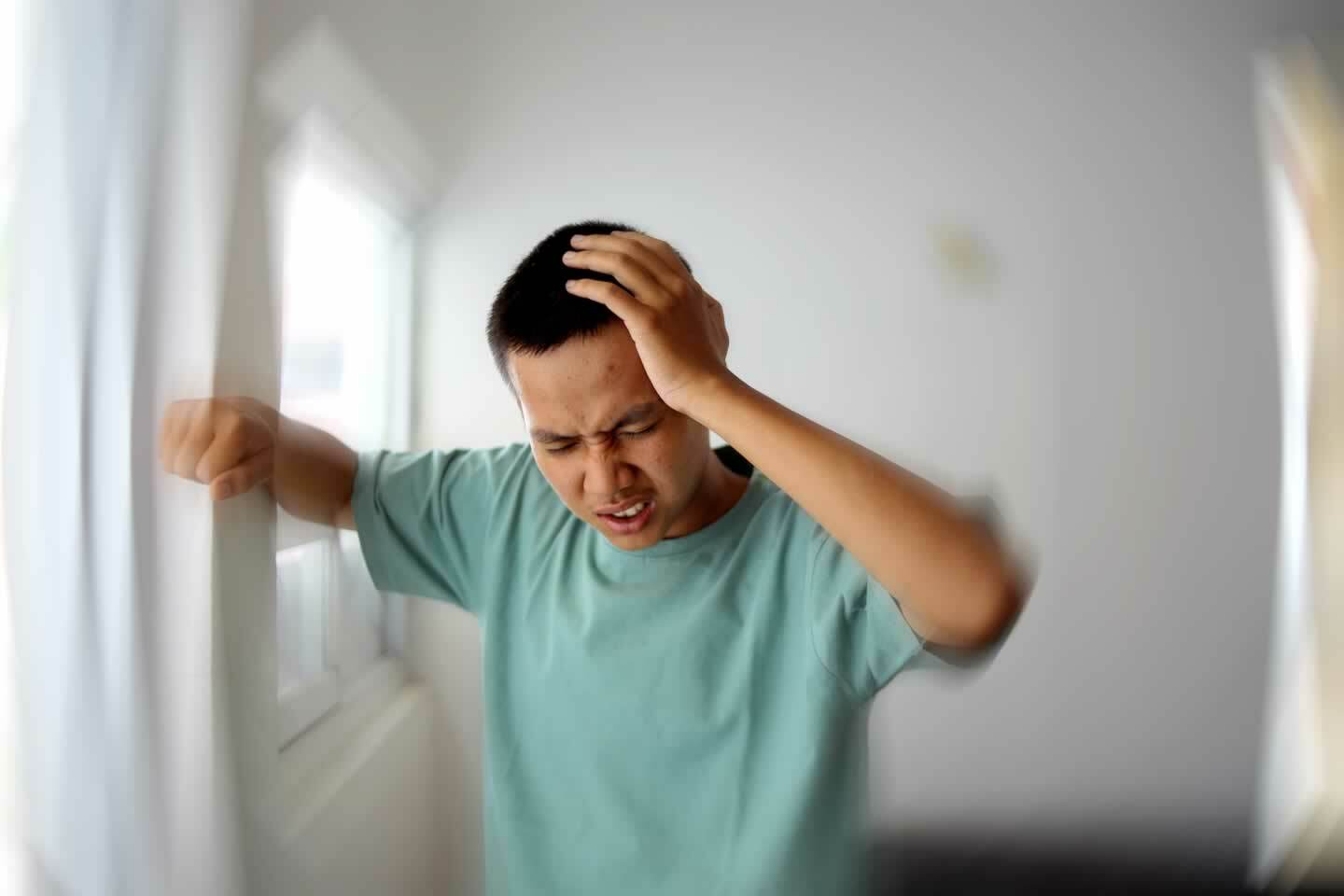
Vertigo is common yet unsettling - for some, vertigo is a mild inconvenience, while it can significantly disrupt daily life for others. But how long does vertigo last? Whether you're experiencing brief episodes or ongoing bouts, the duration of vertigo largely depends on the underlying cause and the type of vertigo you have.
Table of Contents
What Is Vertigo?
Vertigo is more than just feeling dizzy—it’s a specific sensation where you or your surroundings seem to be spinning or moving when there's no actual motion. This can be disorienting and sometimes overwhelming, as the feeling of spinning can be strong enough to disrupt balance, cause nausea, and even lead to falls. It’s important to distinguish vertigo from general lightheadedness, as vertigo specifically involves a sensation of movement rather than simply feeling faint or woozy.
How Long Does Vertigo Last?
The duration of vertigo episodes can vary widely depending on the underlying cause. While some episodes may last only a few seconds, others can persist for days or even longer.
Short-Term Vertigo (Seconds to Minutes)
One of the most common causes of short-term vertigo is benign paroxysmal positional vertigo (BPPV). This condition occurs when tiny calcium crystals in the inner ear become dislodged and disrupt balance signals to the brain. Episodes of BPPV usually last less than a minute but can be triggered repeatedly by certain head movements. While brief, these episodes can recur over days or weeks, leading to discomfort and disorientation.
Moderate-Term Vertigo (Hours to Days)
Conditions such as vestibular neuritis or labyrinthitis—inflammatory conditions affecting the inner ear or the vestibular nerve—can result in vertigo that lasts several hours to a few days. These conditions typically arise from viral infections and cause prolonged dizziness and balance problems that gradually resolve as the inflammation subsides. Symptoms may peak in severity before slowly improving, but the lingering effects may last for days or weeks.
Long-Term Vertigo (Days to Weeks or Longer)
Certain conditions, such as Meniere’s disease, can cause episodes of vertigo that last from several hours to days and may recur over a long period. Meniere’s disease involves fluid buildup in the inner ear, leading to repeated episodes of vertigo, hearing loss, and tinnitus. Recovery between episodes can vary, with some people experiencing long stretches of relief and others dealing with more frequent flare-ups.
Can Stress Cause Vertigo?
Stress can indeed be a contributing factor to vertigo, though it is not typically the direct cause. Prolonged periods of stress or anxiety can exacerbate underlying conditions that lead to vertigo, particularly in individuals with pre-existing inner ear or neurological issues. Stress triggers the body’s "fight or flight" response, releasing hormones like cortisol that can increase blood pressure, affect circulation, and amplify sensations of dizziness or imbalance. For example, those with vestibular migraines or Meniere’s disease may notice that their vertigo episodes are more frequent or intense during stressful times. Additionally, anxiety disorders can sometimes present with symptoms of dizziness, which may be mistaken for vertigo. In these cases, while stress is not the root cause of vertigo, it can certainly aggravate or prolong symptoms.
How to Prevent Vertigo
While it’s not always possible to prevent vertigo, especially if it stems from underlying health conditions, there are several steps you can take to reduce the frequency and severity of episodes.
- Avoid triggering movements: For those with benign paroxysmal positional vertigo (BPPV), certain head positions or movements can trigger episodes.
- Manage stress: Stress can sometimes worsen or trigger vertigo, so managing stress levels is key to prevention.
- Maintain a healthy diet: For those with Meniere’s disease, dietary factors such as high sodium levels, caffeine, and alcohol may trigger episodes.
- Engage in vestibular rehabilitation: Engaging in vestibular rehabilitation exercises under the guidance of a healthcare professional can help improve balance and coordination.
- Treat underlying conditions: Managing underlying health conditions contributing to vertigo is crucial.
- Limit alcohol and tobacco: Excessive alcohol consumption and smoking can exacerbate vertigo symptoms or contribute to dizziness.
Visit AFC Hamilton NJ
If you're experiencing vertigo that interferes with your daily life or persists beyond a brief episode, it's important to seek medical professionals. At (AFC), our experienced healthcare professionals can refer you to specialists and recommend appropriate treatments to alleviate your symptoms.
Contact AFC Hamilton NJ center location today for expert care. Walk in or schedule an appointment to get the relief you need—your health is our top priority!


